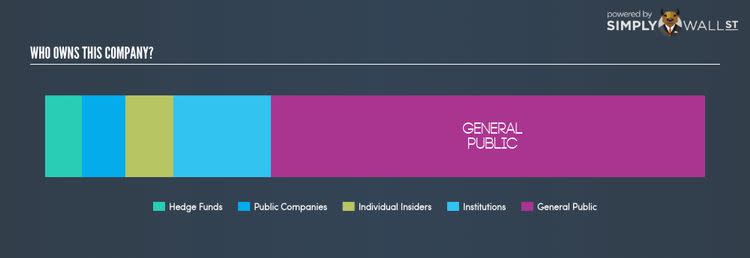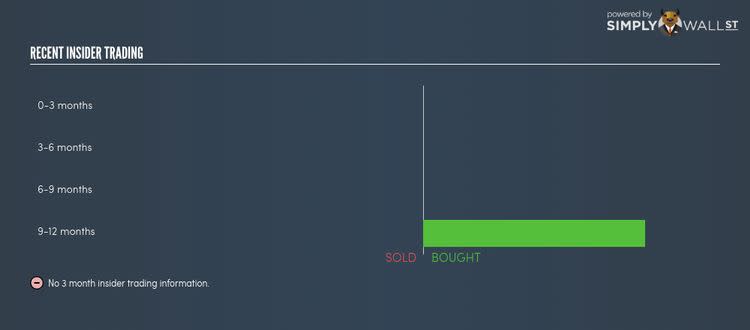Why Echelon Corporation’s (ELON) Investor Composition Impacts Your Returns

I am going to take a deep dive into Echelon Corporation’s (NASDAQ:ELON) most recent ownership structure, not a frequent subject of discussion among individual investors. When it comes to ownership structure of a company, the impact has been observed in both the long-and short-term performance of shares. Since the effect of an active institutional investor with a similar ownership as a passive pension-fund can be vastly different on a company’s corporate governance and accountability of shareholders, investors should take a closer look at XYZ’s shareholder registry. All data provided is as of the most recent financial year end.
See our latest analysis for ELON
Institutional Ownership
Institutions account for 14.78% of ELON’s outstanding shares, a significant enough holding to move stock prices if they start buying and selling in large quantities, especially when there are relatively small amounts of shares available on the market to trade. Although ELON has a high institutional ownership, such stock moves, in the short-term, are more commonly linked to a particular type of active institutional investors – hedge funds. Hedge funds, considered active investors, hold a 5.68% stake in the company, which may be the cause of high short-term volatility in the stock price. But I also examine other ownership types and their potential impact on ELON’s investment case.
Insider Ownership
I find insiders are another important group of stakeholders, who are directly involved in making key decisions related to the use of capital. In essence, insider ownership is more about the alignment of shareholders’ interests with the management. ELON insiders are also influential stakeholders with 7.22% ownership in the company. This level of ownership indicates closely aligned interests of shareholders and management. It may be interesting to see what insiders have been doing with their shares lately. Insiders buying shares can be a positive indicator of future performance, but a selling decision can be simply driven by personal financial needs.
General Public Ownership
A big stake of 65.68% in ELON is held by the general public. This size of ownership gives retail investors collective power in deciding on major policy decisions such as executive compensation, appointment of directors and acquisitions of businesses. This level of ownership gives retail investors the power to sway key policy decisions such as board composition, executive compensation, and potential acquisitions. This is a positive sign for an investor who wants to be involved in key decision-making of the company.
Public Company Ownership
Another group of owners that a potential investor in ELON should consider are other public companies, with a stake of 6.64%. While they invest more often due to strategic interests, an investment can also be driven by capital gains through share price appreciation. This kind of ownership, if predominantly strategic, can give these companies a significant power to affect ELON’s business strategy. Thus, potential investors should look into these business relations and check how it can impact long-term shareholder returns.
What this means for you:
Are you a shareholder? With significant institutional ownership, including active hedge, existing investors should seek a margin of safety when investing in ELON. This may enable shareholders to comfortably invest in the company and avoid getting trapped in a sustained sell-off that is often observed in stocks with this level of institutional participation. Looking for ways to reinforce your current portfolio holdings? Take a look at our free platform for a list of stocks with a strong growth potential.
Are you a potential investor? Ownership structure should not be the only determining factor when you’re building an investment thesis for ELON. Instead, you should be evaluating fundamental factors like the relative valuation of ELON, which is an important driver that determines ELON’s share price. Take a look at our most recent infographic report on ELON for a more in-depth analysis of these factors to help you make a more well-informed investment decision.
NB: Figures in this article are calculated using data from the last twelve months, which refer to the 12-month period ending on the last date of the month the financial statement is dated. This may not be consistent with full year annual report figures.
To help readers see pass the short term volatility of the financial market, we aim to bring you a long-term focused research analysis purely driven by fundamental data. Note that our analysis does not factor in the latest price sensitive company announcements.
The author is an independent contributor and at the time of publication had no position in the stocks mentioned.


